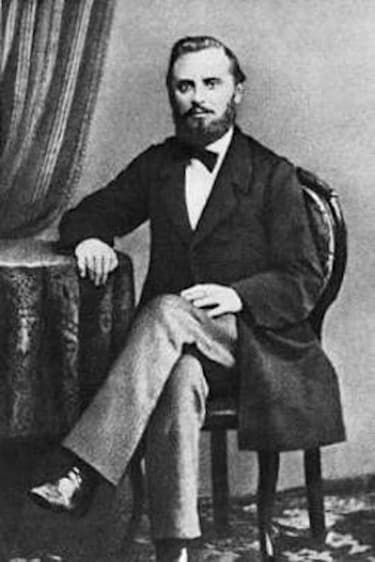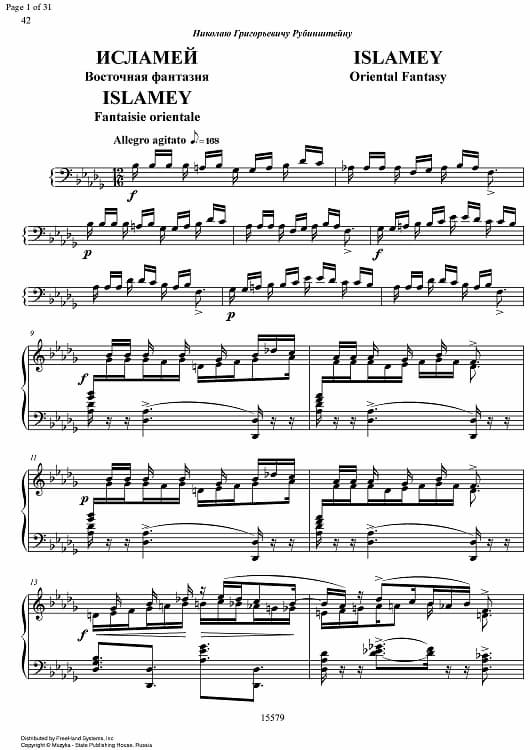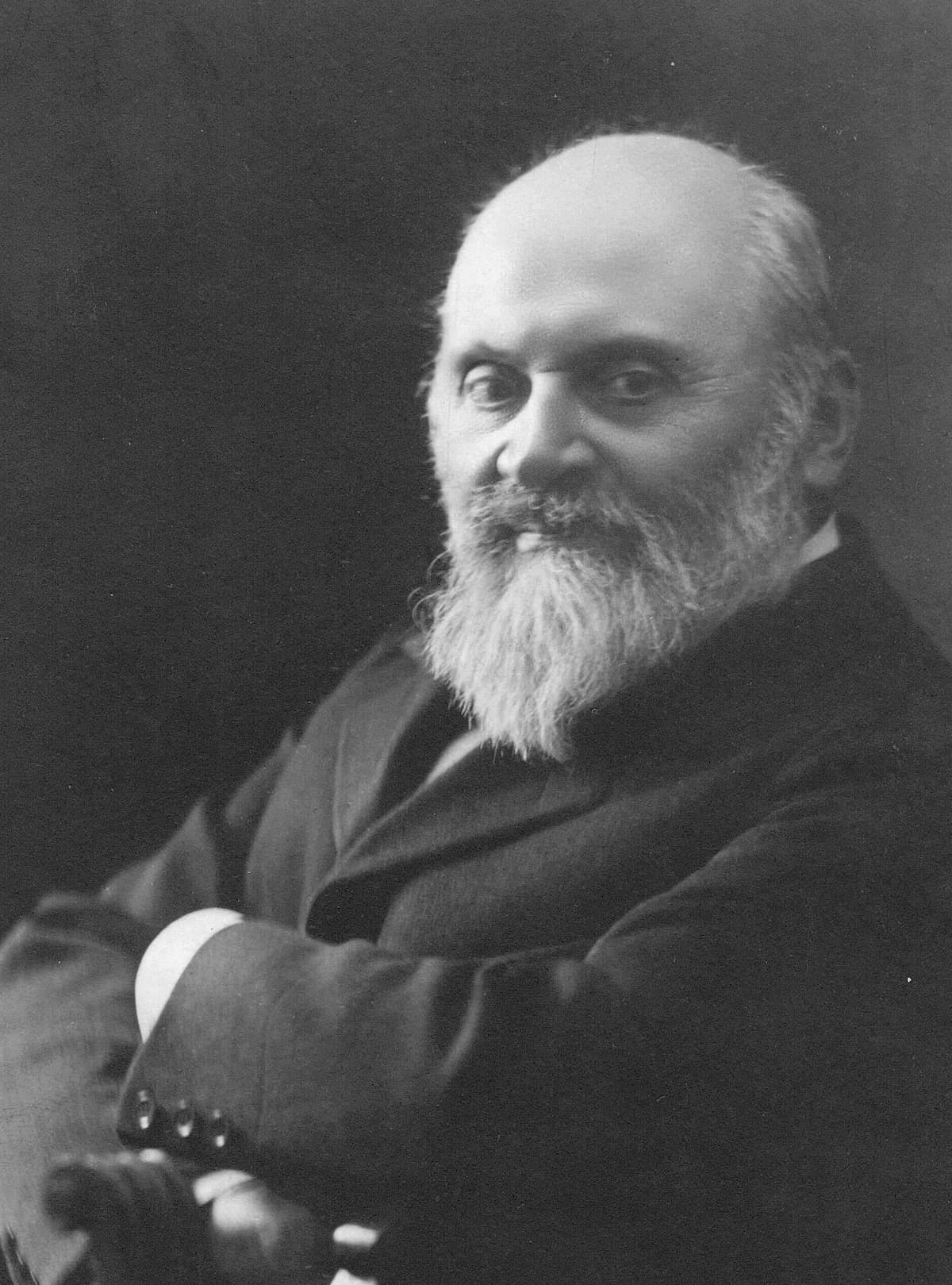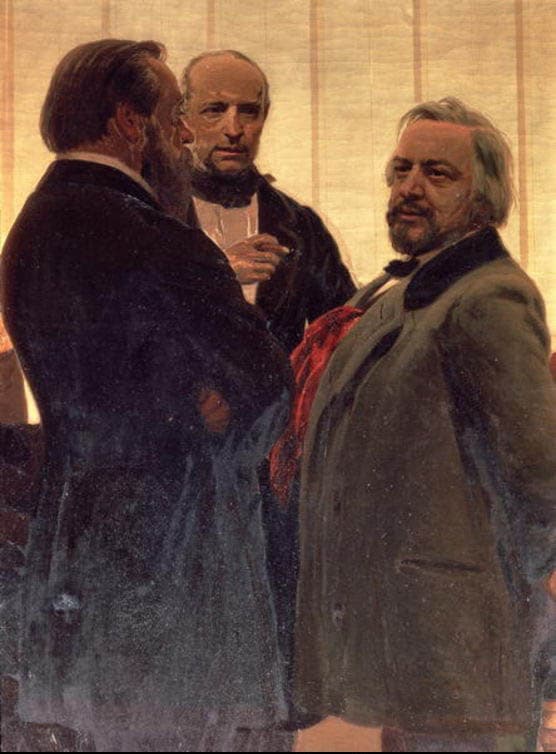Mily Balakirev, born on 2 January 1837 in Nizhny Novgorod, is primarily remembered as the founder of the “Russian Five” and the Free School in St. Petersburg. He famously instilled a sense of nationalistic pride in the music of Russia, relying on the rich artistic traditions and resources of Eastern Europe and Northern Asia.
Mily Balakirev: Islamey (Fantasia oriental)
Ancestry
Mily Balakirev was born into a noble Russian family, and his father Alexey Konstantinovich belonged to an ancient dynasty that had led the Russian army against the Khanate of Kazan in 1544. They took part in the 1618 Siege of Moscow, and as a reward, the family was granted land in Nizhny Novgorod. By the time of Mily’s birth, much of the fortune was gone, and his father was employed as a minor government official.

The young Mily Balakirev
His mother, Elizaveta Ivanovna Balakireva (née Yasherova) came from a minor nobility in the Nizhny-Novgorod district, and there had been some musical talent in her family. Mily was the eldest of four children and the only son. Apparently, she started giving piano lessons to her son at the age of four and took him to Moscow at the age of ten to take piano lessons with Alexander Dubuque during the summer holidays.
Mily Balakirev: Octet, Op. 3 (London Conchord Ensemble)
Earliest Memories

Mily Balakirev: Islamey
In old age, Balakirev wrote the following brief account of his youth, “I have only a very vague recollection of my musical development in the period of my infancy. As far as I can remember, from the age of eight, I seldom left my piano, endeavoring to play any music which I heard.”
“I recall very well having had, from my infancy, a very well-developed sense of sound, for when I visited the house of my uncle, Vassily Yasherov, I reckoned that his piano was tuned a tone lower than ours.” Dubuque made him learn the Hummel piano concerto in A minor with John Field’s fingerings. According to Balakirev, Dubuque taught him the principles of correct technique and fingering.
Mily Balakirev: Piano Concerto in F-Sharp minor, Op. 1 (Howard Shelley, piano; BBC Philharmonic Orchestra; Vassily Sinaisky, cond.)
Karl Eisrich and Aleksandr Ulibishev

Mily Balakirev
Karl Eisrich was a teacher and conductor of the local theatre orchestra, which played at musical gatherings at the home of a wealthy landowner named Aleksandr Ulibishev. Ulibishev had written a book on Mozart and would later write one on Beethoven, and his salons included much chamber and piano music, some of it specifically arranged by Eisrich.
Through Eisrich, the young Mily Balakirev first heard works of Glinka and Chopin, and he was accorded the opportunity to play, read and listen to lots of different music. He also rehearsed other musicians in orchestral and choral works, including the Mozart Requiem at the age of 14. At age 15, he was allowed to lead rehearsals of Beethoven’s First and Eighth Symphonies, and his earliest surviving compositions also date from this period.
Mily Balakirev: Grande fantaisie on Russian folksongs, Op. 4 (Joseph Banowetz, piano; Russian Philharmonic Orchestra; Konstantin Krimetz, cond.)
Meeting Glinka

Repin: Vladimir Odoevsky (1803-69), Mily Balakirev (1837-1910) and Mikhail Ivanovich Glinka (1804-57), 1890s
In 1853, Mily Balakirev entered the University of Kazan as a mathematics student, taking along his best friend and soon-to-be novelist Pyotr Boborykin. Boborykin recorded his detailed recollections in 1907. Balakirev met the composer-pianist Ivan Laskovsky and the pianist Antoni Kątski, and he appeared as a pianist at Kronstadt and St. Petersburg, playing the solo part in the first movement of his projected piano concerto.
However, most significantly, Mily Balakirev met Mikhail Glinka in St. Petersburg in late 1855. Glinka quickly realised that Balakirev had considerable musical talent, but he considered his compositional technique defective. Mind you, there were no music textbooks in Russian at the time, and Balakirev’s German was barely adequate.
Nevertheless, Glinka encouraged him to take up a musical career. This encounter with Glinka would have a lasting effect on Balakirev, as he was called upon after Glinka’s death in 1857, to guide, educate, and mentor a small group of Russian composers, later to become famous as “The Five.”
For more of the best in classical music, sign up for our E-Newsletter
